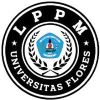Games Asyik Matematika: Pengabdian Kepada Masyarakat di SD Negeri Jatirangga 3 Bekasi
DOI:
https://doi.org/10.37478/abdika.v1i1.916Abstract
Based on the analysis of the situation that occurred, the lack of socialization related to the 2013 Curriculum made many elementary school teachers including SDN Jatirangga 3 Bekasi City do not understand. Teachers of SDN Jatirangga 3 in Bekasi City have not been able to apply the 2013 Curriculum in the learning process. Based on a request letter from SDN Jatirangga 3, the Chairperson of STKIP Kusuma Negara to send PGSD lecturers to provide training to teachers there regarding the 2017 Revised 2013 Curriculum in particular. So the PGSD Study Program, STKIP Kusuma Negara sent 4 lecturers to become resource persons for the training. This training was given the theme "Having Fun with the 2013 Curriculum". With the theme "Having Fun With Curriculum 2013", it is hoped that teachers will not make the specter of the 2013 Revised Curriculum 2017 as a frightening specter. Fun Indonesian Language Games will be the main material in community service activities this time. Service activities are carried out through several stages, the following are the steps that are carried out in service: 1) Planning, the following stages Observation and searching for data about the 2013 curriculum and various fun games-based learning methods, Collaboration with schools and teachers, PKM Game development Mathematics; 2) Implementation, implementation of the 2013 Curriculum Have Fun Training; 3) Application, Application of Curriculum 2013; 4) Evaluation and Assistance, Evaluation of the strengths and weaknesses of PKM. The evaluation uses an observation sheet at the time of implementing the 2013 curriculum in the classroom. The training activities which were carried out for 2 days ran smoothly even though there were obstacles and could be overcome immediately. The selection of speakers is adjusted to the field of expertise of each lecturer with an understanding of the 2013 Curriculum. The speakers' understanding of the 2013 Curriculum enables the training participants to understand the presentation of the speakers. It is marked by the enthusiasm of the training participants during the training activities. Math Fun Game in question is a method of learning mathematics in teams. Where the training participants were divided into 2 groups.
Downloads
Keywords:
Fun Games, Curriculum 2013, MathematicsReferences
Bito, G. S. (2016). Aktivitas bermain sebagai konteks dalam belajar matematika di sekolah dasar dengan pendekatan matematika realistik. Jurnal Pemikiran dan Pengembangan Sekolah Dasar (JP2SD), 1(4), 250-255. https://doi.org/10.22219/jp2sd.v1i4.2796
Fredy, F., Tembang, Y., Bito, G. S., & Sholikhah, O. H. (2020). Exploration Ethnomathematics of the Malind Tribe for Character Building in Elementary Schools. International Journal on Advanced Science, Education, and Religion, 3(2), 9-20. https://doi.org/10.33648/ijoaser.v3i2.58
Novitasari, D. (2016). Pengaruh penggunaan multimedia interaktif terhadap kemampuan pemahaman konsep matematis siswa. FIBONACCI: Jurnal Pendidikan Matematika Dan Matematika, 2(2), 8-18. https://doi.org/10.24853/fbc.2.2.8-18
Mulyasa, E.(2014). Pengembangan dan Implementasi Kurikulum 2013. Bandung: Remaja Rosdakarya. Google Scholar
Peraturan Pemerintah Republik Indonesia Nomor 19 tahun 2005 tentang Standar Nasional Pendidikan.
De Araujo, D., Kusumastuti, B., Widyaningrum, S. N., Sidharta, A. P., & Hardiyanti, B. T. (2014, January). Peningkatan Kemampuan Belajar Hitung pada Anak melalui Ragam Permainan Kreatif. In Pekan Ilmiah Mahasiswa Nasional Program Kreativitas Mahasiswa-Pengabdian Kepada Masyarakat 2013. Indonesian Ministry of Research, Technology and Higher Education.
Downloads
Published
How to Cite
Issue
Section
License
Copyright (c) 2021 Dyah Anungrat Herzamzam, Evi Faujiah

This work is licensed under a Creative Commons Attribution-ShareAlike 4.0 International License.









